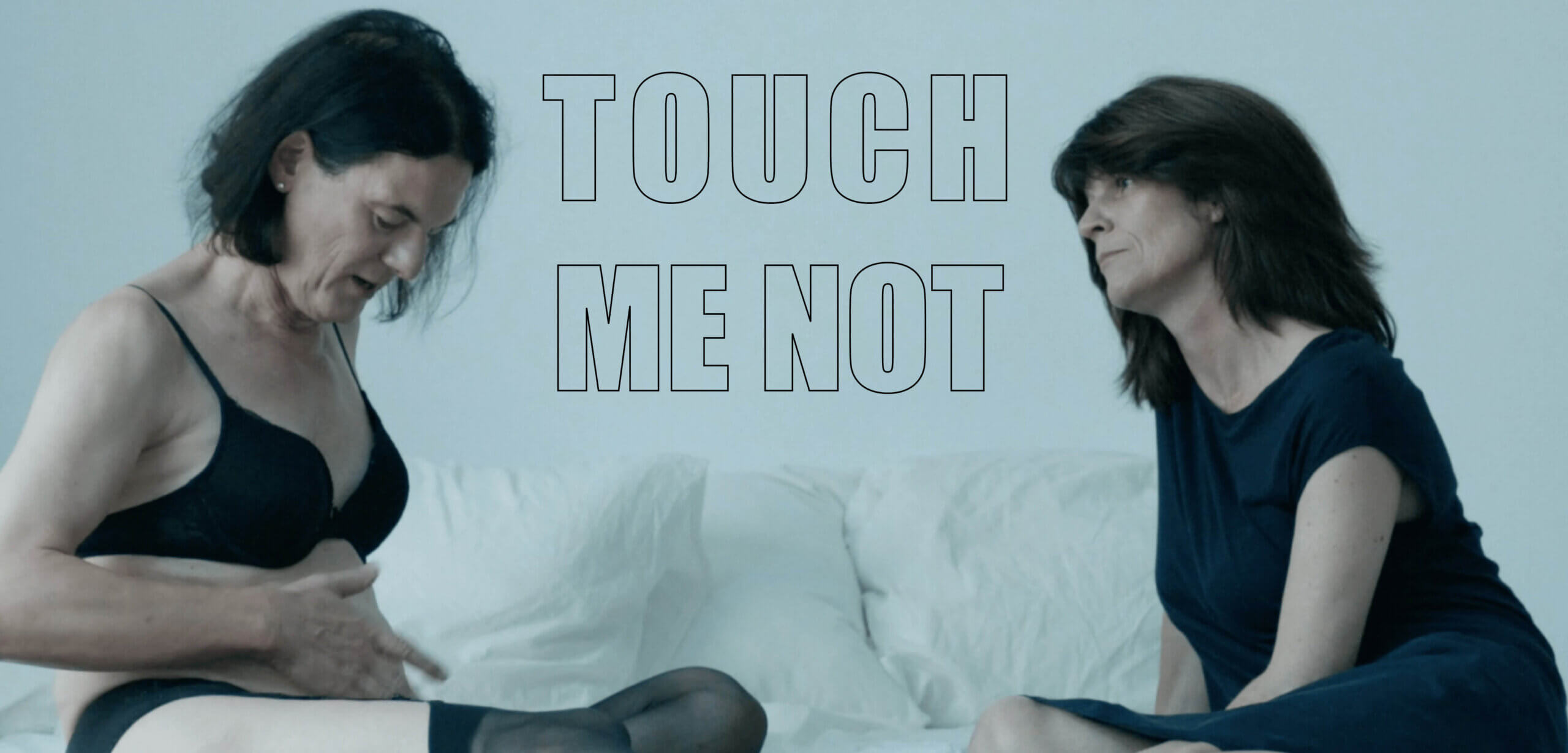CONTENT WARNING: This film contains flashing lights which may not be suitable for photosensitive epilepsy.

TOUCH ME NOT
dir. Adina Pintilie, 2018
125 min, Bulgaria, Czechia, France, Germany and Romania
In Romanian and English with English subtitles
THURSDAY, FEBRUARY 9 – 10:00 PM
TUESDAY, FEBRUARY 14 – 7:30 PM
MONDAY, FEBRUARY 20 – 7:30 PM
TUESDAY, FEBRUARY 28 – 10:00 PM
“The film is proposing a dialogue: a mind-opening experience about being different, different kinds of beauties, different kinds of bodies, and experiences of intimacy” – Adina Pintilie
TOUCH ME NOT marks the first entry in artist Adina Pintilie’s years-long investigation of bodies and intimacy. True to the director’s evolving understanding of these, the film embraces fluidity. Not quite fiction and not quite documentary, TOUCH ME NOT positions itself as a reality-bending project that incorporates self-reflexive strategies, actors, and a diverse cast of non-actors whose non-normative bodies and experience with sex work, informs Pintilie’s interrogation of the meanings we attach to gender, sex, sexuality, bodies and intimacy. Winner of both the Golden Bear and the Best First Feature Award at the Berlin International Film Festival in 2018, TOUCH ME NOT is a landmark film apropos of body politics.
“Propelled by intuition, emotion and philosophical inquiry rather than by plot, Pintilie’s debut feature is a semidocumentary essay exploring what it means — how it feels, why it matters — to dwell inside a body. You could say that what the film is about lies just beyond the reach of images or words. It’s a necessarily cerebral meditation on the nature of physicality.
The director’s initial verbal reticence contrasts with both the eloquence of some of her characters and subjects and the explicitness of the images she captures. Nakedness and intimacy — the first almost too easy to achieve, the second almost impossibly difficult — are the basic themes of “Touch Me Not.” A handful of people from different countries, some professional actors, some sex workers, talk about their desires, anxieties and inhibitions in ways that are sometimes painfully open and often highly abstract.” — A.O. Scott, New York Times
